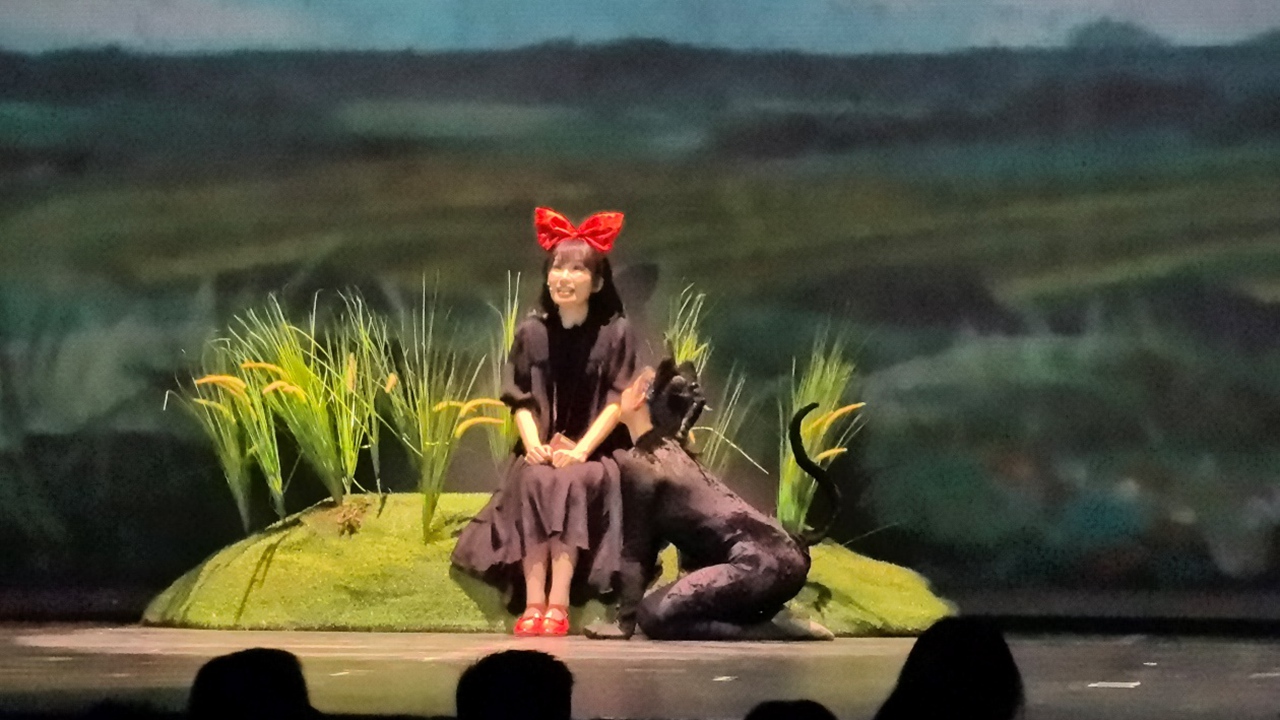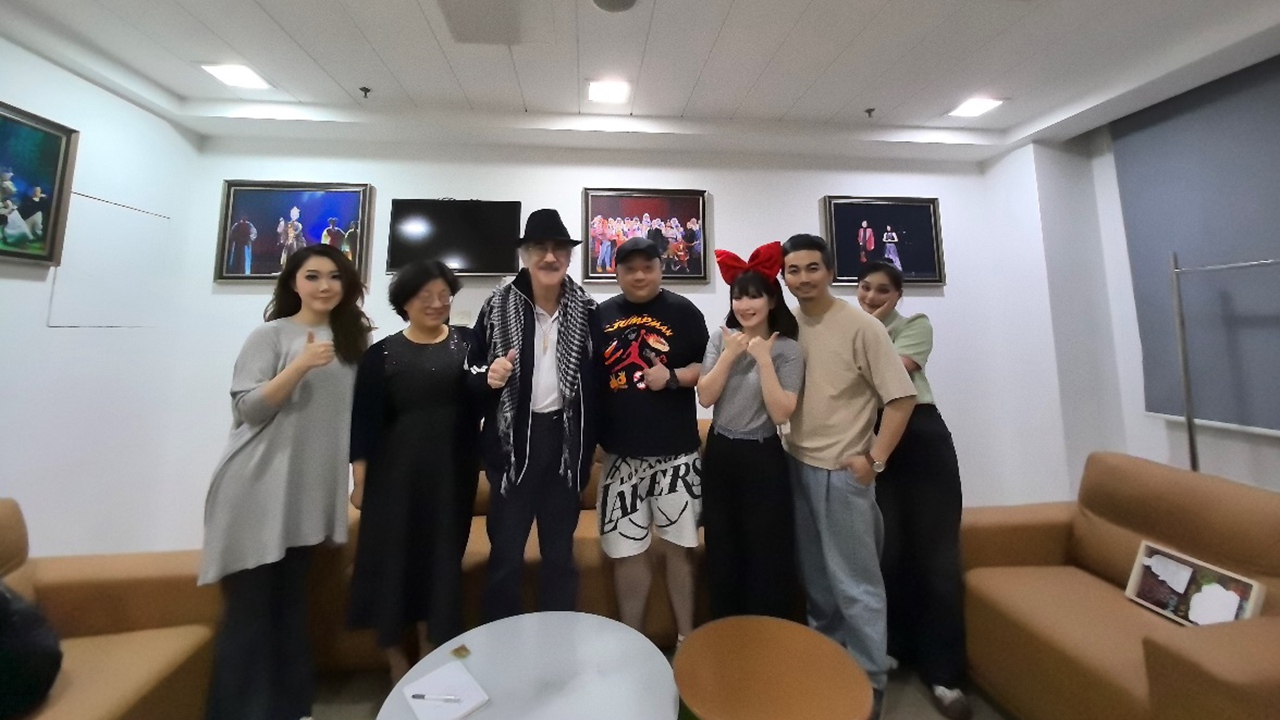Little Orange Castle delivers Kiki’s message
Writer: Don Rechtman | Editor: Zhang Zeling | From: Original | Updated: 2024-12-13
Chinese musical “Kiki’s Delivery Service” was staged in Shenzhen on Dec. 7. The musical’s costumes were true to the original book’s story — retro styles from the 1950s, with suspenders, bow ties, button down vests, oversize hair ribbons and long below-the-knees dresses. But that’s the only aspect that is true to the book: this musical theater production of “Kiki’s Delivery Service,” a story originally from Japan that was later made into a musical and a movie and that in 2021 was translated and presented in Chinese, is one of those rare instances in which a book’s story is expanded and, as good as the book is, ends up presenting something even better!

Kiki and her cat in a scene from “Kiki’s Delivery Service.” Photos by Don Rechtman
Kiki is a witch, but not a stereotypical evil witch; historically, witches were women who were in touch with the power of nature and used its energy for good, not evil. Kiki is that real kind of witch, and she comes from a family of that same good background. Her costume is a long black dress with a previously mentioned oversize red hair ribbon; her cat Jiji (who outperformed the cats in the musical “Cats”) was also in black with an oversize black hair ribbon carefully positioned to impersonate a cat’s ears.

A scene from “Kiki’s Delivery Service.” Courtesy of the Nanshan Little Orange Castle Children’s Theater Company
The rest of the characters included the village’s mayor and his three cohorts, her parents, a married baker couple, a fortune teller, assorted townspeople, and a seemingly troublesome boy named Qingting.
“Kiki’s Delivery Service” is a coming-of-age story. Although only 13, Kiki strives to find herself and her role as a contributor to humanity; in the process, she comes across numerous obstacles, some from nature, some from others, some from within herself: Bad weather thwarts her ability to make timely deliveries; the mayor plots to sabotage her growing popularity; and she finds herself coping with her own self-doubt.
The opening began with an introductory song, presented with a mysterious almost spooky drab atmosphere, then burst into an exuberant song complemented with astounding stage and multi-media effects. Kiki then has a solo in which she contemplates her desires, which she then shares with her parents, who agree in song to her plans.
The parents’ singing was the least professional of the cast, but as they were quite sufficient enough to be enjoyable, that speaks highly of the overall vocal quality of the production; the roles of Kiki, her cat Jiji, the boy Qingting, the mayor and several others were sung by first-class musical theater voices.
Kiki finds herself befriended by the bakery and its family, and as a flying witch was able to start a delivery service. Some of the incidents included Jiji temporarily substituting for a look-alike stuffed cat being repaired after being damaged during a delivery; the challenge of delivering an oversize painting (Qingting tried to help by offering the service of the flying machine he had invented); and the mayor’s unsuccessful attempt at sabotaging Kiki’s popularity. Ultimately, she is successful in her quest, accepts the friendship of Qingting and is accepted by the community.

Don Rechtman (3rd L) poses for a photo with the director and some of the cast of “Kiki’s Delivery Service.”
The stagecraft was excellent: several scenes included behind the scrim views, and in the absence of wires to have characters flying, was able to provide a sense of Kiki, the fortune teller and Qingting being elevated and flying. The music track was of superb quality, and the orchestration and sound effects were top notch.
The director, Ping Pai, did an outstanding job of assuring the production’s continuity. I had an opportunity to meet him and several cast members after the show; their post-show energy seemed equal to what they displayed throughout the production! The show had been on tour through several AC Orange theaters throughout China, including stops in Suzhou, Zhengzhou, Nanyang, etc., with Shenzhen being their final stop for this production.
I joked about how they would now get a three-day vacation; they laughed and explained that they would actually get only two days off before resuming rehearsals for their next show. I asked about their thoughts on the meaning of this musical; they collectively responded that it is indeed a coming-of-age story.
One said their favorite music was the opening number (she was in it!); I expressed that I thought the next to final song was the most musically complex and best overall song both technically and emotionally, and it was indeed the climactic moment of the show. They all felt that it was a great experience performing in Shenzhen, as the audience was most receptive and warm in their expression of appreciation for their performance.
This show not only meets the expectations of young readers of the Kiki story book and the movie; it is yet another reflection of the Little Orange Castle commitment to providing excellent performances not only for kids but for adults as well.